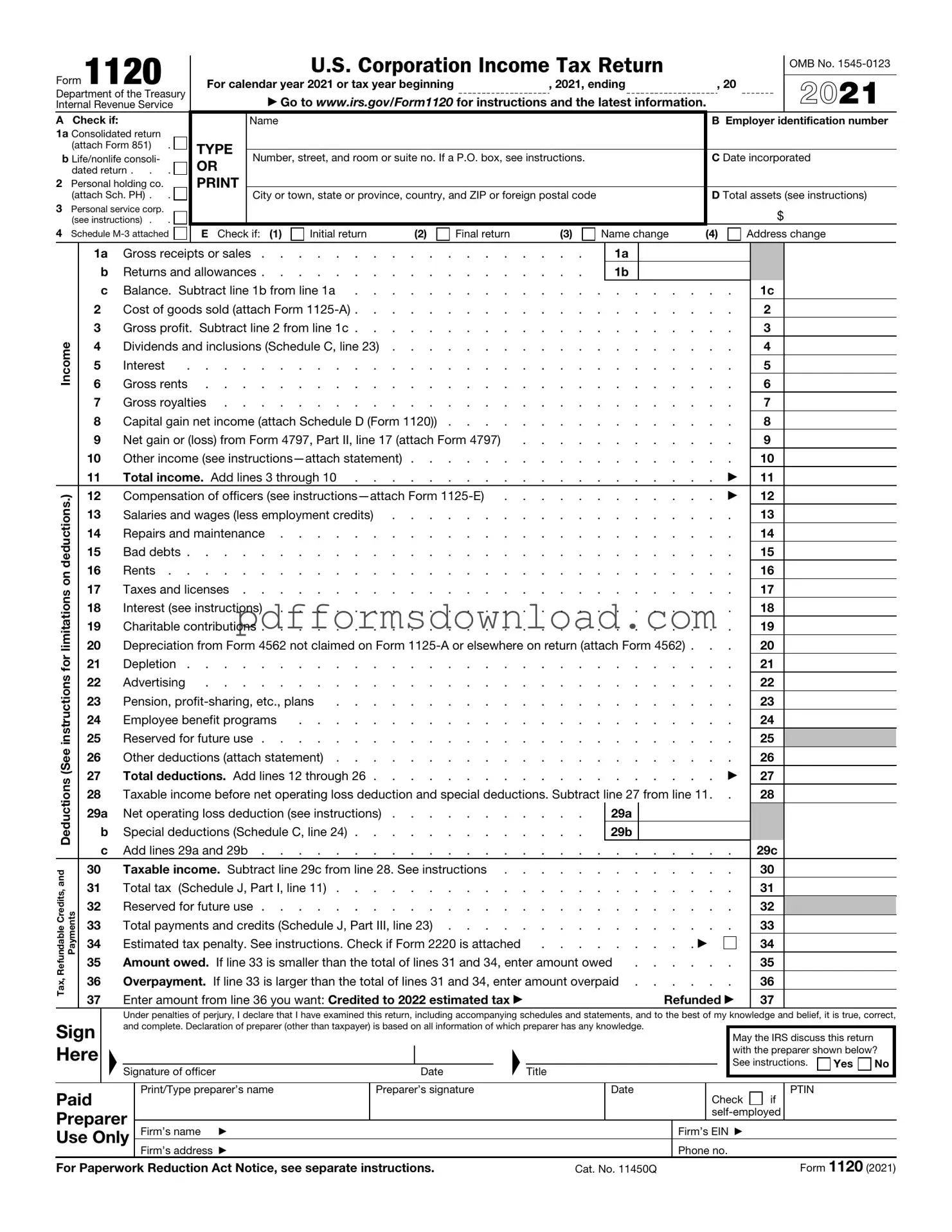Download IRS 1120 Template
The IRS Form 1120 is a tax return used by corporations to report their income, gains, losses, deductions, and credits to the Internal Revenue Service. This form is essential for C corporations, as it outlines their financial performance and tax obligations for the fiscal year. Understanding how to accurately complete this form is crucial for compliance and financial planning.
To begin filling out the form, please click the button below.
Make This Document Now

Download IRS 1120 Template
Make This Document Now

Make This Document Now
or
Free PDF File
Your form is almost ready
Complete your IRS 1120 online — edit, save, and download easily.